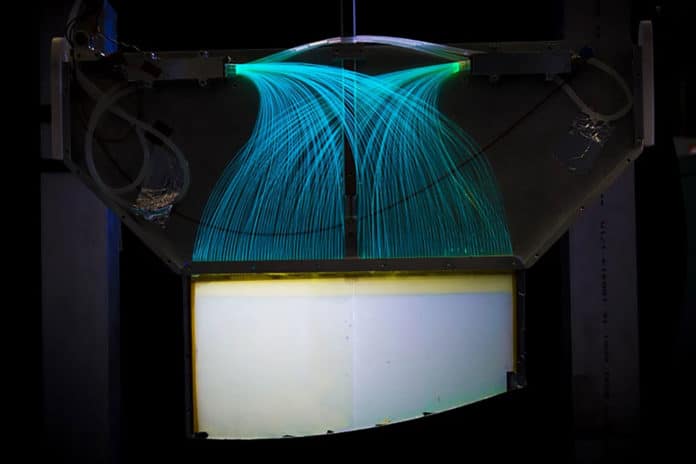How long, on average, a free neutron lives outside the confines of atomic nuclei?
To find out the answer, an international team of physicists led by Indiana University conducted an experiment that captured neutrons. The temperatures of these neutrons are lowered to nearly absolute zero inside a “bathtub” lined with about 4,000 magnets.
After waiting 30 to 90 minutes, the team counted the surviving neutrons in the tub. The experiment, using magnetic fields to trap ultra-cold neutrons, suggests that the average time it takes for the subatomic particle to decay is 877.75 seconds.
The findings have doubled the precision of similar measurements. Also, they are consistent with theoretical calculations.
David Baxter, chair of the IU Bloomington College of Arts and Sciences’ Department of Physics, said, “This work sets a new gold standard for a measurement that has fundamental importance to such questions as the relative abundances of the elements created in the early universe. We’re proud of IU’s long-time role as a leading institution on this work.”
Understanding the precise lifetime of the neutron can shed light on how the universe developed. It also allows physicists to discover flaws in our model of the subatomic universe that we know exist but nobody has yet been able to find.
Research scientist Daniel Salvat said, “The experiment’s results will help physicists confirm or deny the validity of the “Cabibbo-Kobayashi-Maskawa matrix,” which concerns subatomic particles called quarks and plays an important role in the widely accepted “standard model” of particle physics.”
“It will also help physicists understand the potential role that new ideas in physics, such as neutrons decaying into dark matter, may play in evolving theories about the universe, as well as possibly help explain how the first atomic nuclei were formed.”
“The underlying model explaining neutron decay involves the quarks changing their identities, but recently improved calculations suggest this process may not occur as previously predicted. Our new measurement of the neutron lifetime will provide an independent assessment to settle this issue or provide much-searched-for evidence for the discovery of new physics.”
Journal Reference:
- F. M. Gonzalez et al. Improved Neutron Lifetime Measurement with UCNτ. DOI: 10.1103/PhysRevLett.127.162501
